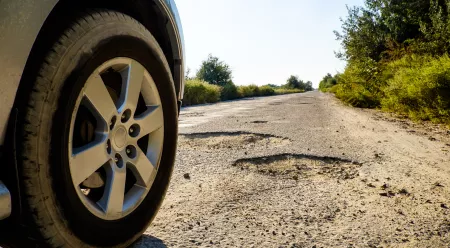Compare and purchase
Canada's best landlord insurance.
Type of Coverage We Provide
Landlord insurance
Landlord insurance protects rental property and real estate owners from unforeseen losses related to their properties. It is similar to traditional home insurance in many respects, as most policies include the following types of coverage: property coverage, landlord belongings, liability, and loss of rental income.
Homeowners insurance is meant to protect properties that policyholders live in, whereas landlord insurance protects a property that is rented out by tenants. Landlord insurance protects the property owner's belongings and other aspects of the property listed on the policy. It does not cover or protect tenants' belongings.
Compare 10+ Quotes +
Speak to a Dedicated Advisor
Licensed Insurance Advisor

Landlord Insurance FAQs
Landlord insurance protects your rental property in the event of damage or loss; covering property and real estate owners from financial losses at their rental properties. Landlord insurance usually includes coverage for the building, contents that you own on the property, liability arising from ownership, and loss of rental income.
There is no coverage for rental properties under your home insurance policy. Even if you have a rental unit in your home (i.e. basement or garage) you still need to inform your insurance provider and purchase separate coverage.
No, landlord insurance is not mandatory in Canada. It is, however, required by lenders that a policy be in place before a mortgage is issued. No one will lend you money unless the property has insurance.
Landlord insurance provides protection for your building, items used to maintain the property and liability coverage. It also includes legal fees if you face a lawsuit.
Standard landlord insurance coverage:
- Property coverage
- Landlord’s belongings
- Liability coverage
- Loss of rental income
If you want more than what your standard landlord insurance policy covers, here are some things that you might want to add on to your current policy:
- Flood Insurance (sewer backup and overland water coverage)
- Earthquake Insurance
- Extended contents insurance
- Loss of rental income
- Airbnb coverage
No, landlord insurance does not cover tenants' belongings. Renters must purchase their own policy to protect their belongings (clothing, furniture) and other possessions in the event of a loss.
Here are the types of property you can get insured:
- Landlord-owned- detached or townhouse, single-family home
- Landlord-owned- detached, duplex, triplex, or 4-plex (* 2-4 units under one roof)
- Landlord owned-condo, low or high-rise building, or townhouse-style condo
The best way to get cheap landlord insurance is to combine it with your primary home policy. Most insurance carriers offer 'bundle and save' discounts. Talk to your advisor to see how you can save.
One of the most significant benefits of having landlord insurance is peace of mind. Having a rental property is a big investment so if anything goes wrong you have your insurance coverage to rely on to cover costs of repairs and/or replacement items.
Yes, as mentioned earlier, tenants need to purchase their own insurance policy to protect themselves financially in the event of damage to their belongings.
Landlords can now make tenant insurance a condition for a renter's lease, making it a requirement before moving in.
Average landlord insurance costs approximately 20% more than house insurance. But it also depends on what type of property you have for rental purposes. Talk to your advisor today to get a free quote on your landlord insurance!
Our Reviews
Surex insurance tips & advice
Many Canadians face unexpected costs after disasters due to underinsurance. Learn how to assess coverage, avoid gaps, and protect your home.
Spring brings potholes—hidden road hazards that can damage your car. Learn how to avoid them and why proper insurance coverage is essential.
Trump's tariffs on Canada, Mexico, and China impact industries like insurance by raising costs on goods. Retaliatory tariffs and economic tensions continue as the U.S. cites immigration and drug concerns.



















